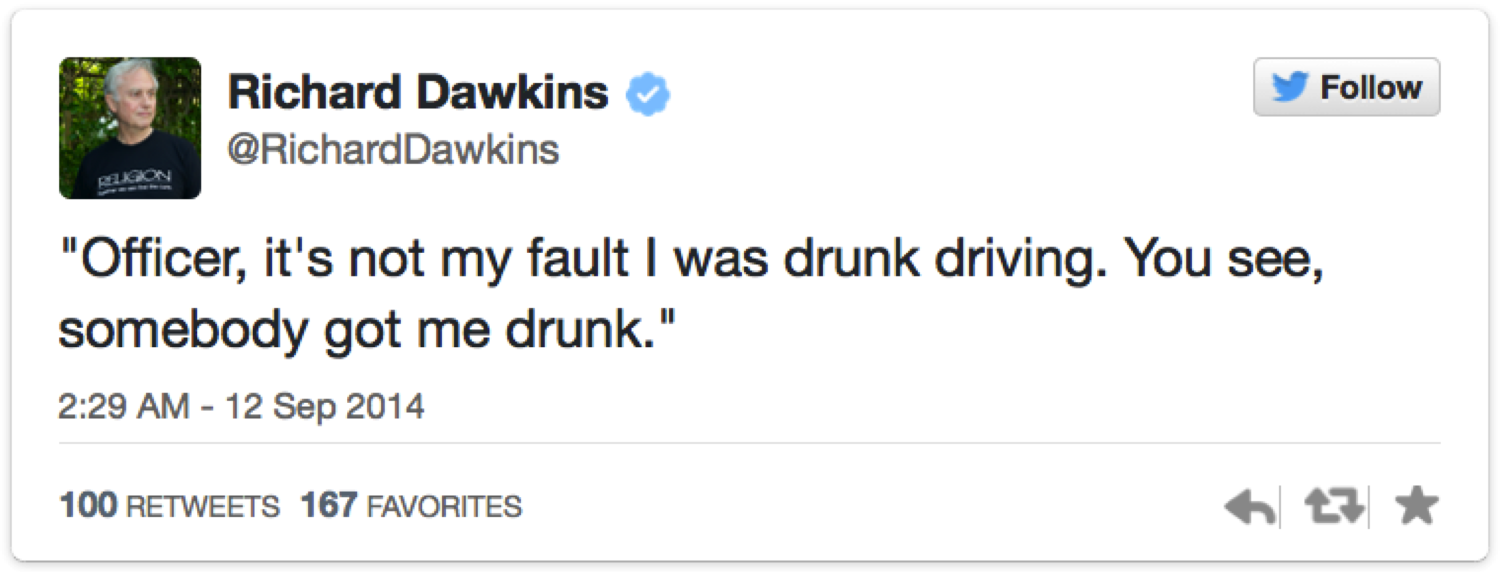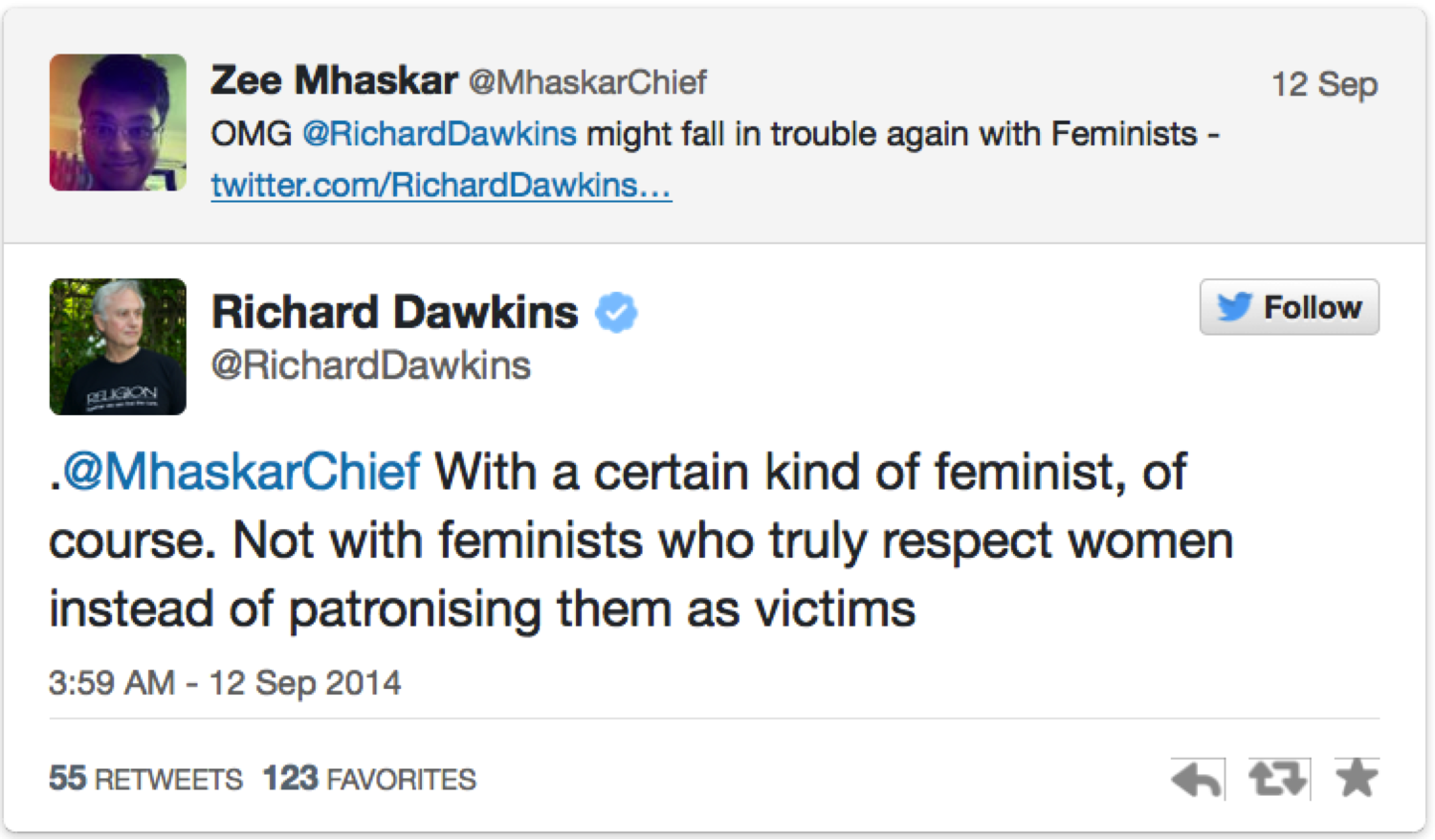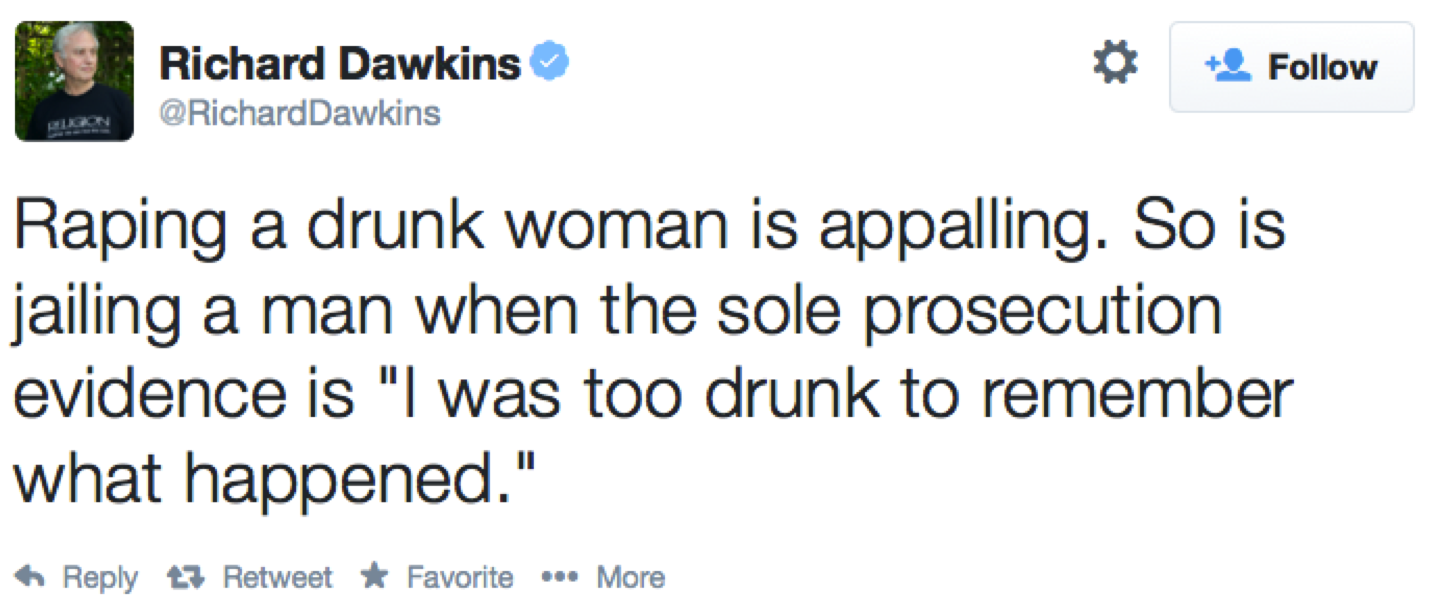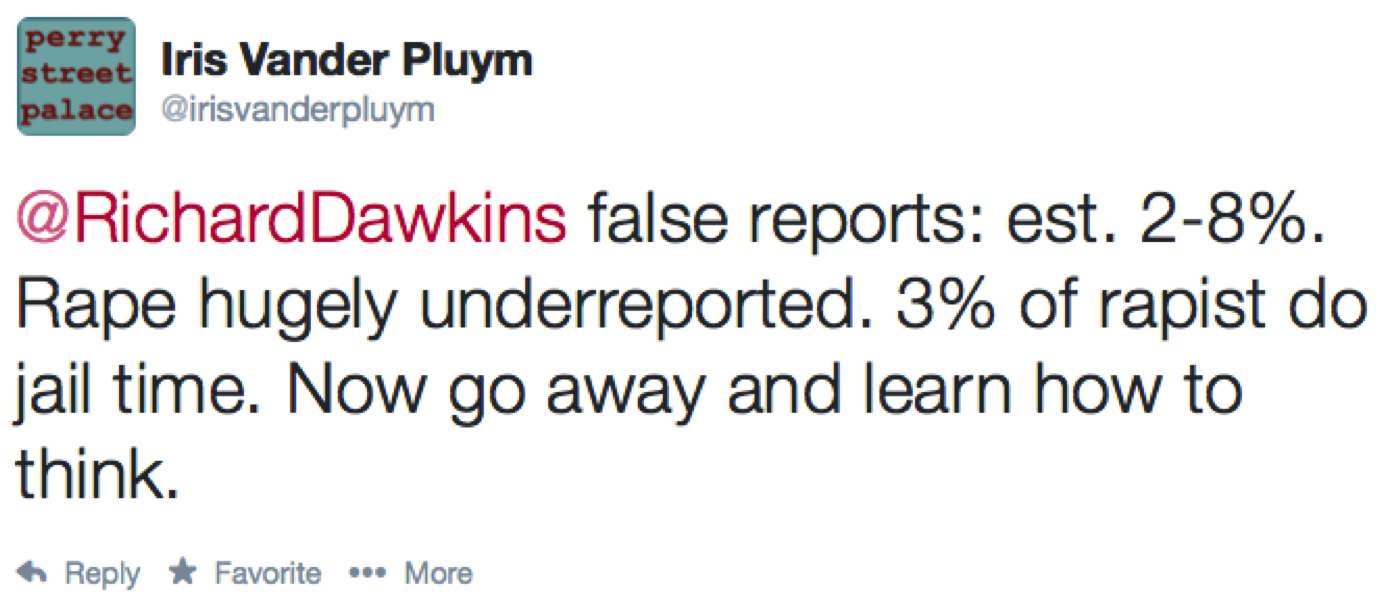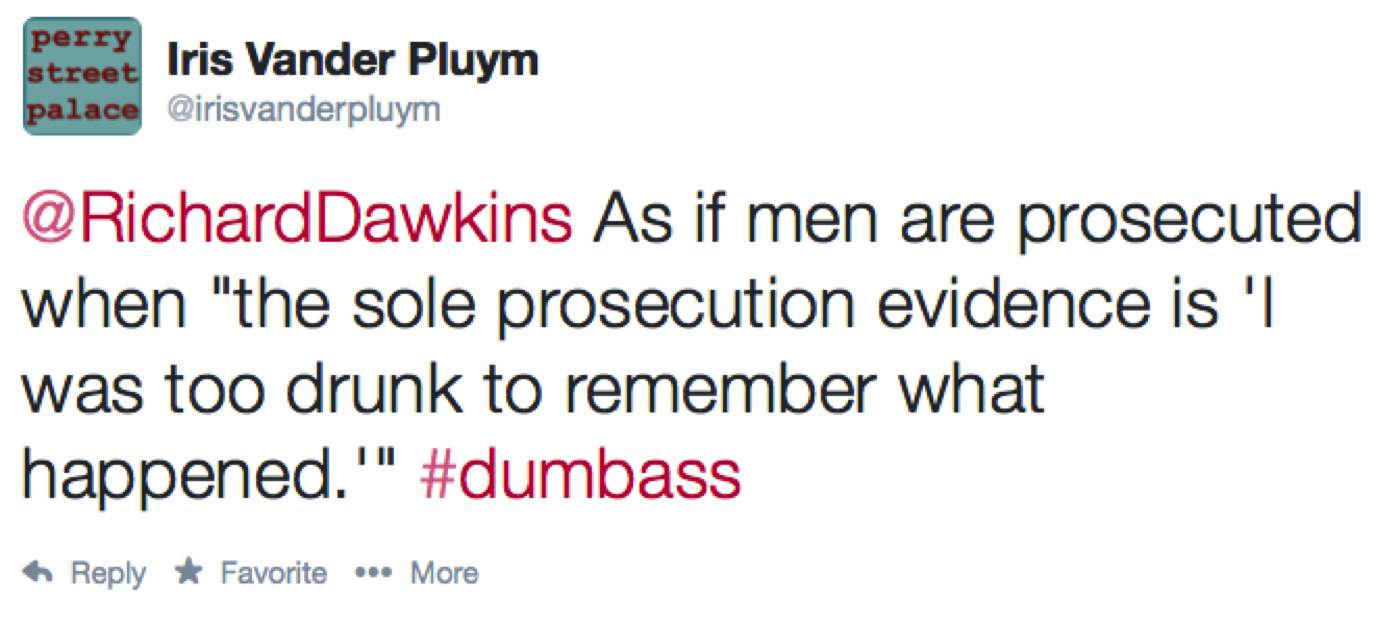The belief that words, especially if intended as humorous, cannot cause harm is counterfactual. And because it is counterfactual, it does harm in itself.
First, I’d like to point out that in many cases, even people who make this claim often don’t act as if they believed it: e.g. people who will defend the use of slurs because words are harmless will easily turn around and whine for ages about how being criticized is bullying. That’s not behavior consistent with “words don’t harm”, it’s behavior consistent with a belief that some words don’t cause harm, while others do.
Now, let’s look at the actual idea that words in general cannot cause harm. At the individual level, “verbal aggression, statements intended to humiliate or infantilize, insults, threats of abandonment or institutionalization” are all part of the medical definition of emotional abuse[1], and the CDC includes a number of verbal actions as constituting psychological abuse[2]. At the institutional level, the right to free speech is valued precisely because it is powerful; to believe this power only works for people’s benefit and never to their harm is to succumb to a Just World bias in which the Good Guys always win. In reality, any tool that can be used to threaten and discredit harmful institutions can also be used to prop them up, or else threaten and smear beneficial institutions (see: Fox News; all of it, on any topic. See also: Breitbart, O’Keefe, Rose)[3].
So, words can hurt. How about jokes?
First, use of disparagement humor can be a sign of underlying problems. People high in hostile sexism and men high in benevolent sexism tended to experience more amusement and less aversion in regard to sexist humor[4]. Furthermore, when people feel a valued social identity is being threatened, they will often resort to disparagement humor against a group that’s deemed an acceptable social target for harassment by their immediate social environment[5]. In other words, frequent appearance of disparagement humor in a community can be an indicator for community members holding prejudices against the disparaged group.
Beyond just being an indicator of prejudice, disparagement humor also creates new negative effects. A 2004 paper reviewing some of the literature on disparagement humor noted a number of effects, some in common with non-jokey disparagement, some specific to disparagement in the form of a joke. Reciting prejudiced comments (jokey or not) worsens one’s own attitude towards the group disparaged. Exposure to disparagement humor on the other hand doesn’t seem to affect the prejudices people hold; instead, it seems to affect how/whether people will act on their prejudices. The authors suggest that this happens because the degree to which individuals high in prejudice act on that prejudice depends largely on external cues of prejudice-tolerance, and the presence of disparagement humor creates the impression of such tolerance more easily than non-humorous disparagement or non-disparaging humor; but (of course) only if the joke teller doesn’t receive pushback[6]. Despite the above evidence, the trope that something cannot be harmful because it’s “just a joke” is widespread enough to even make it directly into the title of a paper which tests the “prejudiced norm theory” suggested in the 2004 review. It demonstrates that “[t]he acceptance of sexist humor leads men to believe that sexist behavior falls within the bounds of social acceptability”[7]; thus, sexist men behave in a more sexist fashion than they would otherwise. In one experiment, that meant the sexists gave less money to a women’s organization; in another, it meant they actively took money away from such an organization[8].
Of course, disparagement humor doesn’t just affect the jokesters and bigots; it also affects the people who are being disparaged and/or who reject the bigotry in the joke. For example, disparaging comments, joking or otherwise, can trigger stereotype threat in certain situations[9]. There’s also evidence that exposure to sexist humor triggers negative emotional reactions (e.g. disgust, anger, hostility)in members of the targeted group[10]. In addition, finding oneself in the presence of bigoted humor can, in specific circumstances, actually lessen one’s critical stance towards that bigotry: if one believes oneself to be someone who speaks up against bigotry but then doesn’t act on that self-image, the discrepancy can cause cognitive dissonance. When the discrepancy can be explained by external factors (e.g. reasonable fear of harm to oneself), then the discomfort is the only end-result of experiencing cognitive dissonance. The same is true if there’s an opportunity to plaster over the discomfort by reaffirming a different part of one’s self-image. However, when external explanations are lacking (e.g. one believes there’s no actual harm, and all it takes is growing a thicker skin) and there are no opportunities for (self-)distraction, the cognitive dissonance is resolved instead by trivialization: since one is the sort of person who’d speak up against bigotry yet one didn’t, then the instance mustn’t have been all that bigoted; or maybe speaking up just isn’t that important to fighting bigotry, after all[11].
So what’s the overall picture? Disparagement humor is an indicator for existent prejudice, both in the jokester and the social environment where it appears; it strengthens the prejudice in the jokester; it creates permissiveness for other bigots to act more bigoted; and it may create apathy towards bigotry in previously critical, non-prejudiced audiences as well as discomfort and a hostile climate for the targets of the disparagement humor. And those are just the effects in the few papers I listed (I had to stop going through more literature, or else never finish this essay). Bigoted speech is, in other words, an indicator and partial cause for e.g. the toxic rape culture environments we find in fraternities across the country[12]. That’s not harmless. Bigoted speech hurts, even when it’s a joke.
[1] McGraw-Hill Concise Dictionary of Modern Medicine (2002). New York, NY, USA: The McGraw-Hill Companies, Inc. [web]. Retrieved from here.
[2]National Center for Injury Prevention and Control (2008). Psychological/Emotional Abuse. [web].
[3]This point shamelessly borrowed from here.
[4]Woodzicka, J. A. & Ford, T.E. (2010). “A framework for thinking about the (not-so-funny) effects of sexist humor”, Europe’s Journal of Psychology, vol. 6(3), pp. 174-195. [pdf]. Retrieved from here.
[5]Pound, L. B. (2008). Jokes are No Laughing Matter: Disparagement Humor and Social Identity Theory. [Master’s thesis]. Retrieved from here.
[6]Ford, T.E. & Ferguson, M.A. (2004). “Social Consequences of Disparagement Humor: A Prejudiced Norm Theory”, Personality and Social Psychology Review, vol. 8(1), pp. 79-94. [pdf]. Retrieved from here.
[7]Western Carolina University (Nov 7, 2007). “Sexist Humor No Laughing Matter, Psychologist Says”. ScienceDaily. [web]. Retrieved from here.
[8]Ford, T.E., Boxer, C.F., Armstrong, J. & Edel, J.R. (2008). “More Than ‘Just a Joke’: The Prejudice-Releasing Function of Sexist Humor”, Personality and Social Psychology Bulletin, vol. 34(2), pp. 159-170. [pdf]. Retrieved from here.
[9]Singletary, S.L., Ruggs, E.N., Hebl, M.R. & Davies, P.G. (2009). Info Sheet: Stereotype Threat: Causes, Effects, & Remedies. [pdf]. Retrieved from here.
[10]LaFrance, M. & Woodzicka, J. A. (1998).”No laughing matter: Women’s verbal and nonverbal reactions to sexist humor”, in Swim, J.K. & Stangor, C. (Editors). Prejudice: The target’s perspective, pp. 61-80. [book chapter]. San Diego, CA, USA: Academic Press. Retrieved from here.
[11]Rasinski, H.M., Geers, A.L. & Czopp, A.M. (2013).”‘I Guess What He Said Wasn’t That Bad’: Dissonance in Nonconfronting Targets of Prejudice”, Personality and Social Psychology Bulletin, Vol. 39(7), pp. 856-869. [pdf]. Retrieved from here.
[12]Chemaly, S. (Nov 4, 2014). “Still Think Rape Jokes Are Harmless Fun?” Role Reboot. [web]. Retrieved from here.

